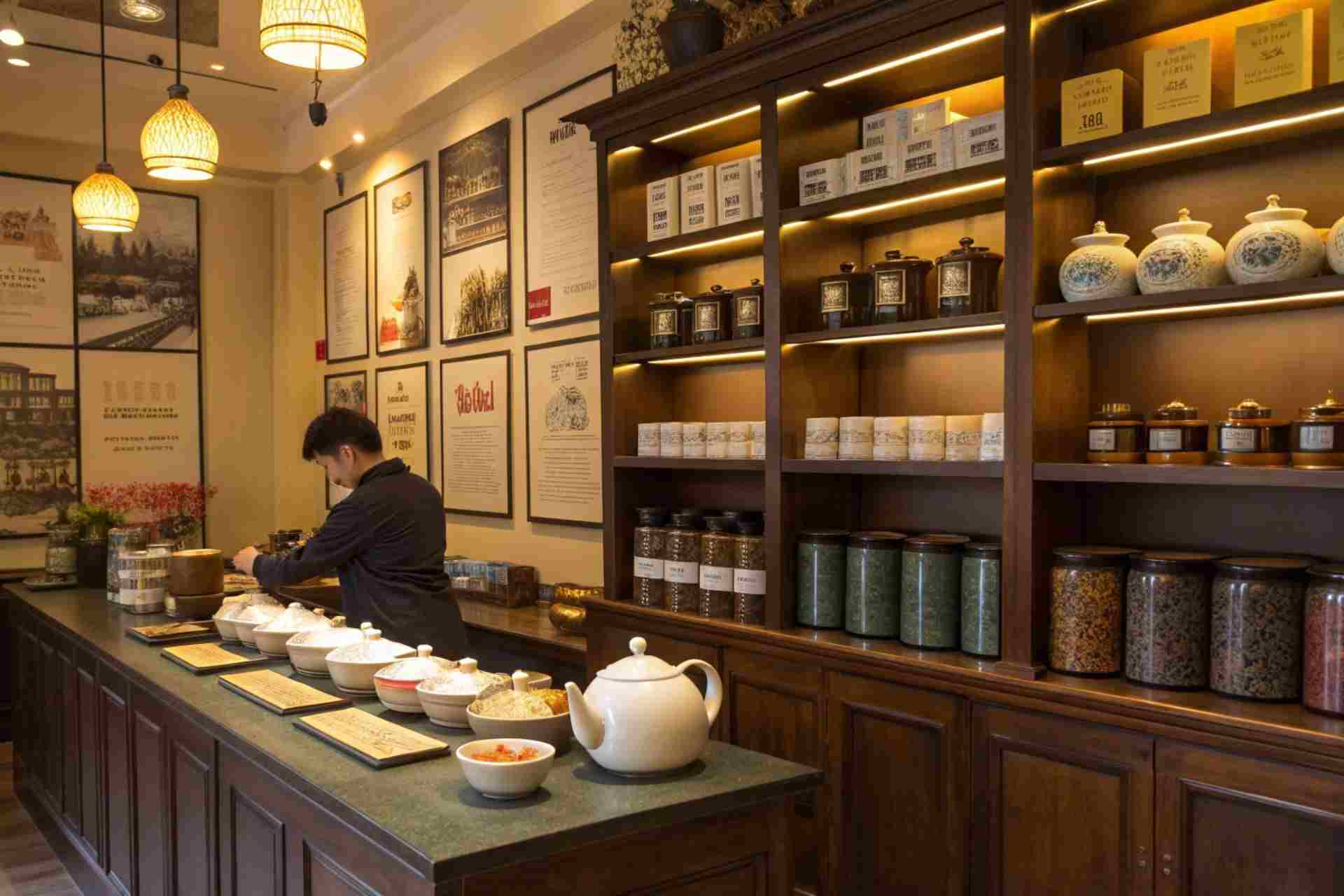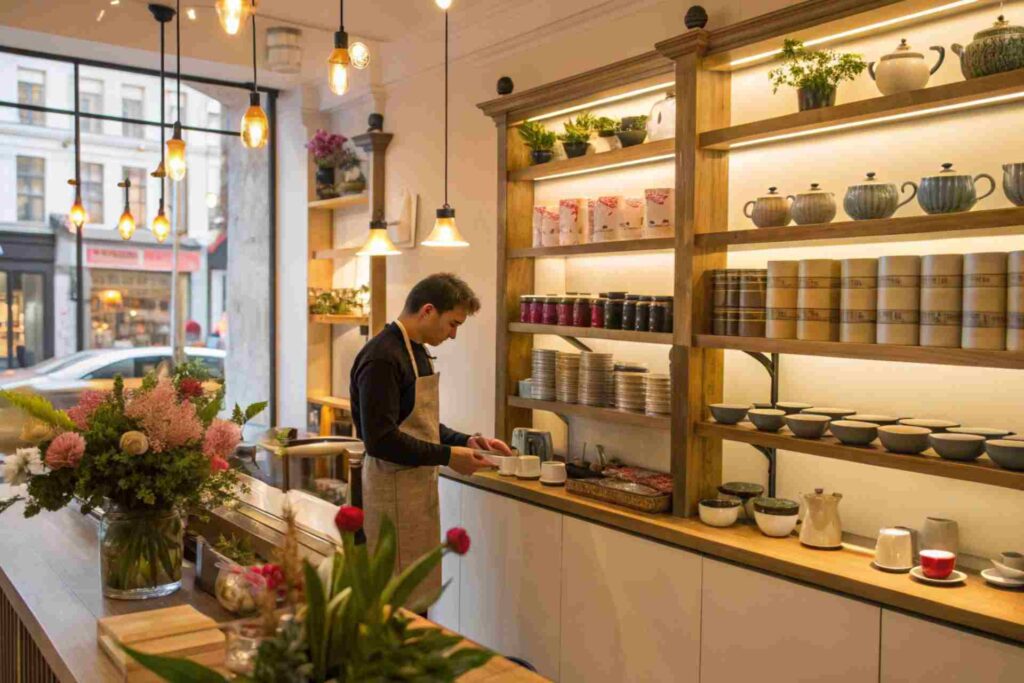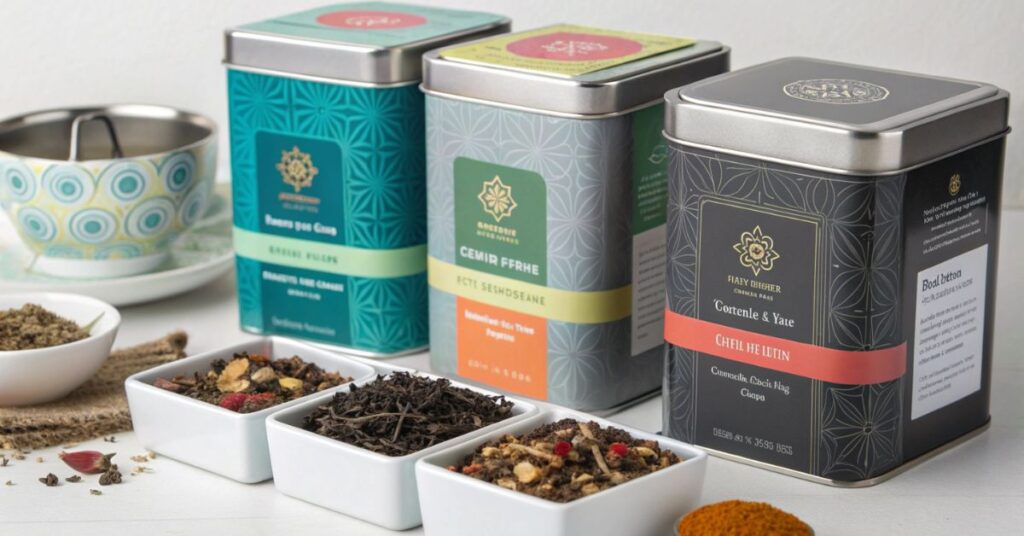
Tea is one of the most consumed beverages in the world, second only to water. With growing demand for specialty teas, organic blends, and herbal infusions, starting a tea business can be a profitable and exciting venture. Whether you want to sell loose-leaf tea, packaged blends, or open a tea café, the tea industry offers endless opportunities for entrepreneurs.
This guide will walk you through everything you need to know about starting a tea business—from planning and sourcing to marketing and scaling.
Step 1: Research the Tea Industry
Before investing, study the tea market in your region and globally. Understand:
- Market demand: Popular types of tea (green, black, oolong, herbal, matcha).
- Target audience: Health-conscious individuals, young professionals, café visitors.
- Trends: Organic teas, wellness blends, iced tea, ready-to-drink bottles.
- Competitors: Analyze existing brands to see their strengths and weaknesses.
Step 2: Decide Your Tea Business Model

There are different ways to enter the tea market. Some options include:
- Tea Retail Store – Selling packaged teas and accessories.
- Tea Café or Lounge – Offering fresh brews and snacks.
- Online Tea Store – Selling tea globally via e-commerce.
- Wholesale Tea Supplier – Supplying tea to restaurants, hotels, and retailers.
- Tea Blending Brand – Creating unique flavors and wellness blends.
Choose a model based on your budget, interest, and resources.
Step 3: Create a Business Plan
A solid business plan is essential for success. It should cover:
- Business goals and vision
- Target audience and niche
- Start-up costs and funding sources
- Pricing strategy
- Marketing and sales plan
- Long-term growth strategy
Step 4: Legal Formalities & Licensing
- Register your business (sole proprietorship, partnership, or company).
- Obtain necessary food licenses and health permits.
- Trademark your brand name and logo.
- Follow packaging and labeling laws in your country.
Step 5: Find Quality Tea Suppliers
The quality of your product will define your success. Source from:
- Local tea growers
- International tea exporters (India, China, Sri Lanka, Kenya)
- Organic tea farms
- Wholesale distributors
Make sure your supplier can provide consistent quality and supply in bulk.
Step 6: Branding & Packaging

Your tea brand should reflect trust, health, and lifestyle.
- Branding: Choose a memorable name, logo, and brand story.
- Packaging: Use eco-friendly, attractive packaging that preserves freshness.
- Labeling: Mention ingredients, nutritional facts, and brewing instructions.
Step 7: Setting Up Your Business
Depending on your model:
- For an online store, build a website and list products on platforms like Amazon, Etsy, or Shopify.
- For a café/store, choose a location with good foot traffic.
- Invest in tea accessories (teapots, cups, storage jars).
- Hire staff if needed.
Step 8: Marketing Your Tea Business
Use both online and offline strategies:
- Social Media Marketing (Instagram, Facebook, TikTok).
- Influencer collaborations and tea bloggers.
- Content marketing (blogs about tea health benefits).
- Free samples at local events.
- Loyalty programs for repeat customers.
- Paid ads (Google Ads, Facebook Ads).
Step 9: Calculate Costs and Pricing
Your expenses may include:
- Raw tea and packaging material
- Rent and utilities
- Website and marketing
- Licenses and permits
- Staff salaries
Decide your pricing by considering costs, competition, and perceived value.
Step 10: Scaling Your Tea Business
Once established, expand by:
- Offering new flavors and blends.
- Selling internationally.
- Supplying to hotels and restaurants.
- Opening new outlets or franchise options.
FAQs:
1. How much does it cost to start a tea business?
It can cost anywhere from $2,000 to $50,000 depending on whether you start online, wholesale, or open a café.
2. Is selling tea profitable?
Yes, tea has high demand with good profit margins (30–60%), especially for premium and specialty blends.
3. Do I need a license to sell tea?
Yes, food business licenses and health permits are required in most countries.
4. Can I start a tea business from home?
Yes, you can start small by selling online, blending teas at home, and shipping to customers.
5. Which type of tea sells best?
Green tea, herbal tea, detox blends, and organic teas are currently the most popular.
Conclusion:
Starting a tea business is not just about selling a beverage—it’s about building an experience and lifestyle around health, taste, and relaxation. With proper planning, quality sourcing, and smart marketing, you can create a profitable brand in the ever-growing tea industry.
You may also like


Understanding Newznav.com and 8888996650: A Comprehensive Guide!

Leave a Reply